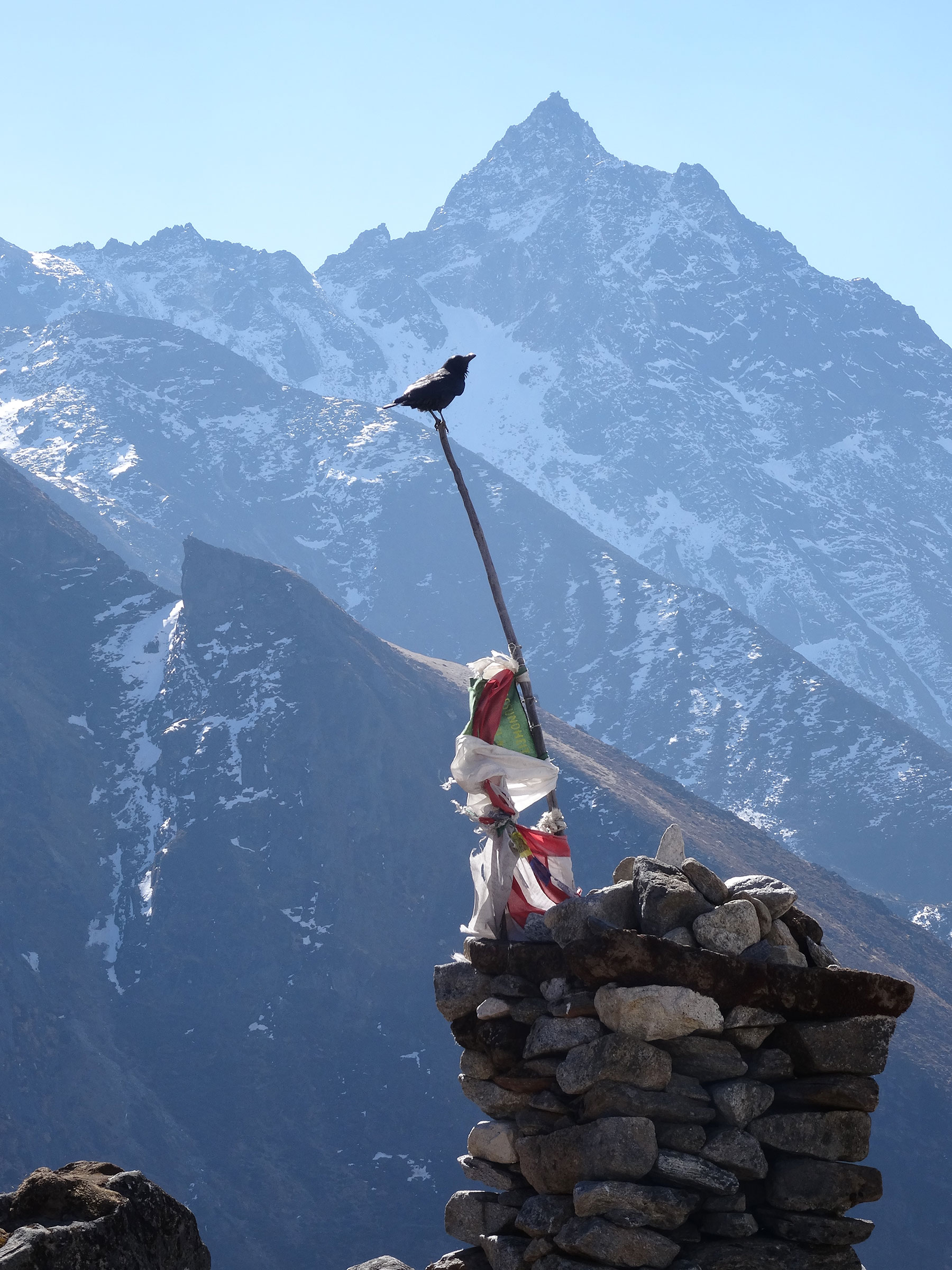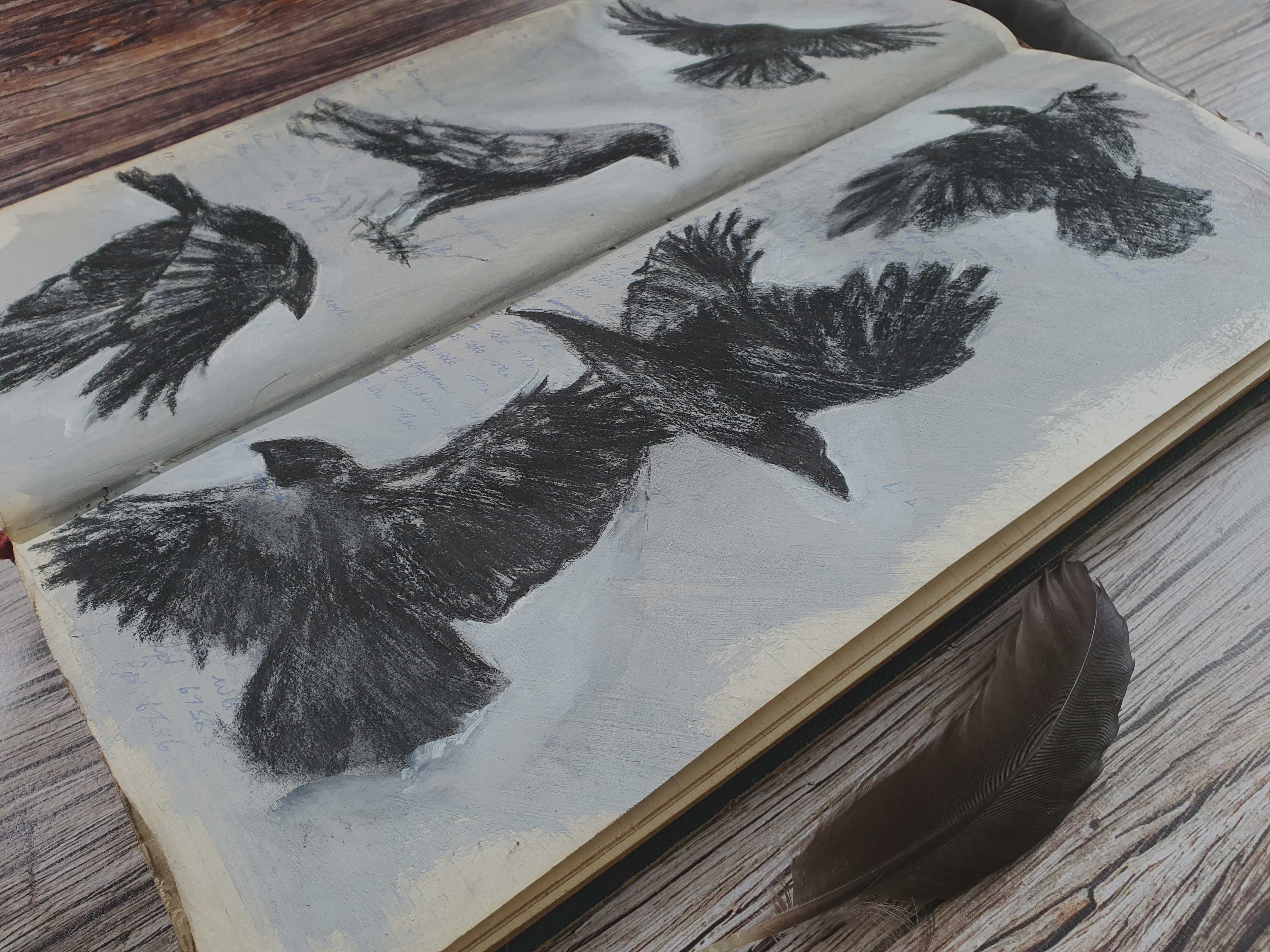
The Corvidae family originated in Australasia and has since spread to every far flung corner of this beautiful world. It includes crows, ravens, rooks, jackdaws, jays, magpies, treepies, choughs, and nutcrackers, and possibly (the research is still out definitively) currawongs, birds of paradise, whipbirds, quail-thrushes, whistlers, monarch flycatchers and drongos, shrikes, vireos, and vangas. Corvus is a genus that includes some 45 members of medium to large sized birds have become endemic on all temperate continents except South America, all appearing to have evolved from corvid stock that evolved in Australia. I can attest to them being in not-so-temperate areas too - I took this photo of a large billed crow at Machermo base camp in the Everest Region of Nepal in 2014, at a height above sea level of 4,410 m (14,468 ft). Quite an emotional moment for me after some 5 days of walking up the sides of steep mountains with ever decreasing oxygen supply!

Corvus are incredibly intelligent birds, with some species capable of not only tool use, but also tool construction. Crows are now considered to be among the world's most intelligent animals with an encephalization quotient equal to that of many non-human primates. While the terms ‘raven’ and ‘crow’ are often used interchangeably, it is generally accepted that ravens are larger, with a beard, or throat ruffle that is much more obvious than crow’s.
The young of various ravens and crows globally have light or blue irises, once adults their eyes are typically the expected brown. In Australia however, the Australian Raven (Corvus coronoides) and Australian Crow (Corvus orru) adults have white (or blue-white) irises - we like our animals unique down here!
Depending on what they are getting up to, a collection of ravens or crows can be called a murder, a constabularly, a conspiracy, a deceit, a congress, a storytelling, or an unkindness. Isn’t that fascinating! Their association with archetypes, Gods and Goddesses of old, including the Norse God Odin and the Celtic Goddesses Badb and Morrigan is deep and many layered - and definitely to be explored further in another class, don’t you think?
While ravens and crows don’t have the most melodic of calls (and can in fact sound rather wretched), any creatures ‘song’ is much more than the noise they make. It is the story of their being, how they move, what they feel, and what they invoke in us. I hope this wee offering to the great raven and crow spirits helps you find your own raven song.
A bird so prevalent can’t help but have a lot written about them, or imaginings inspired by them. Here are just a couple of my favorites:
Edgar Allen Poe’s “The Raven” is possibly the most famous tale of these dark birds:
A bit of Simpson’s Fun!